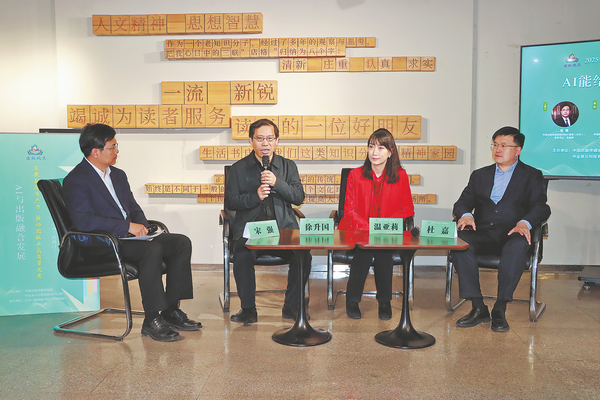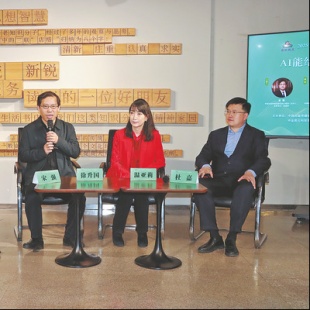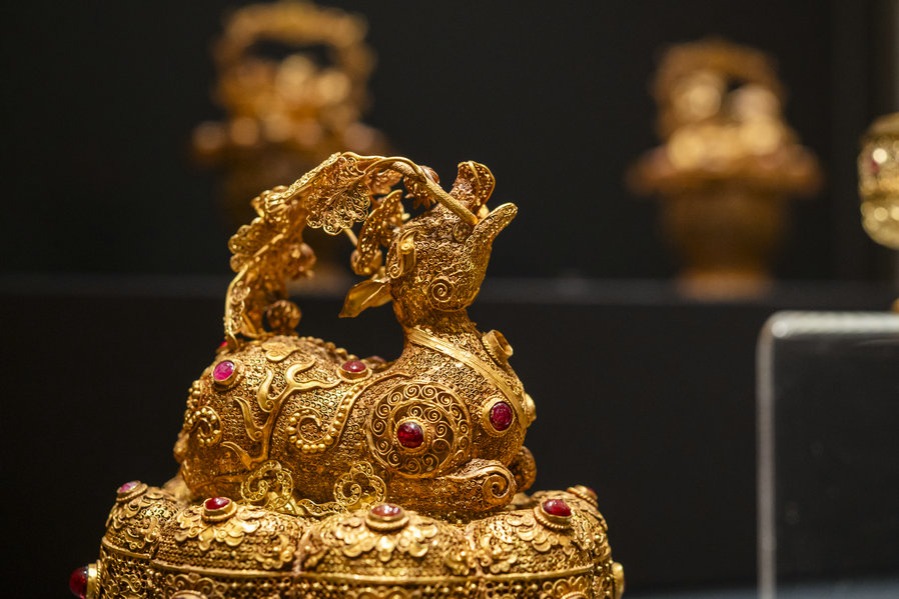Publishing sector must start new chapter in AI era


The rapid advancement of artificial intelligence is reshaping industries globally, and the publishing sector is no exception. A recent symposium in mid-March on "AI and Publishing Integration" in Beijing's Sanlian Taofen Bookstore invited industry leaders to explore how AI technology, particularly AI-generated content (AIGC), is transforming content creation, distribution, and copyright management while presenting challenges and opportunities for publishers.
Starting with DeepSeek, Jiang Zhanfeng, head of the Beijing Normal University Audio-Video Digital Publishing House, says that AIGC is fundamentally restructuring the publishing industry, impacting content creation, publishers' roles, digital platform operations and overall uses.
It also raises questions such as copyright, delineation of responsibility and information security, he adds.
An example is ancient Chinese book collation (including digitization), which involves punctuation, annotation, emendation, translation, and other steps, which tend to cause intellectual property disputes.
"The problem with AI-generated output is in that it might be highly similar, making it difficult to distinguish between independent collation, reference and plagiarism," says Hong Tao, the general manager of the Zhonghua Book Company Gulian (Beijing) Digital Media Technology Co.
Credibility concerns and ethical security issues are also challenges brought on by AIGC, says Chen Yonggang, director of the People's Medical Publishing House's digital center.
To tackle these challenges, the publishing industry must shift from merely producing content to becoming creators of a knowledge service ecosystem. This involves upgrading to provide high-quality interactive knowledge services to users through the integration of books, professional knowledge bases and vertical intelligent agents, Chen says.
Zhu Jishun, president of Centrin Ecloud Co Ltd, a publishing database platform, echoes Chen's thoughts.
He says the essence of artificial intelligence lies in reasoning through facts and models. While AI excels in memory storage and speed, it cannot surpass humans in creative tasks like writing literature.
He suggests that publishers leverage their content strengths by transforming physical books into knowledge service platforms, fostering cultural and creative products and protecting their professional knowledge bases.
By establishing an enterprise resource planning system grounded in data and integrating AI technology for intelligent applications, the industry will enhance processes like editing, printing, and distribution, he says.
Publishers can also use AI to break through traditional frameworks and find new growth points. For instance, the Zhonghua Book Company is expanding its business into cultural heritage, cultural tourism and creative industries.
However, in using AIGC, publishing houses must maintain their autonomy and independence and stand firm on their brands, Jiang warns.
As AI impacts industries, it is also changing readers' behavior and they are no longer obtaining definitive knowledge from books but are turning to "unreliable" sources for "illusory knowledge", which may lead to high-quality content in the publishing industry going unnoticed, says Xu Shengguo, director of the Publishing Research Institute of the Chinese Academy of Press and Publication.
On the other hand, AI presents opportunities, with knowledge and wisdom becoming the core and soul of the intelligent era. He says that although publishing may seem headed towards "death", it is actually ushering in new development opportunities.
However, Du Jia, general manager of the Beijing Chinese Online Reading Company, says that in the AI era, publishing houses still need to focus on selecting quality works.
As the continuous lowering of the threshold for creation leads to a surge in writing, selecting quality work becomes crucial for the publishing industry, he says.
While the industry has always been authoritative, providing creative tools and services, it needs to select quality work from a vast pool of content, endorse them through rigorous processes, and promote them vigorously in the future.
This will be the direction for the development of publishing industry in the AI era, he says.
yangyangs@chinadaily.com.cn





































